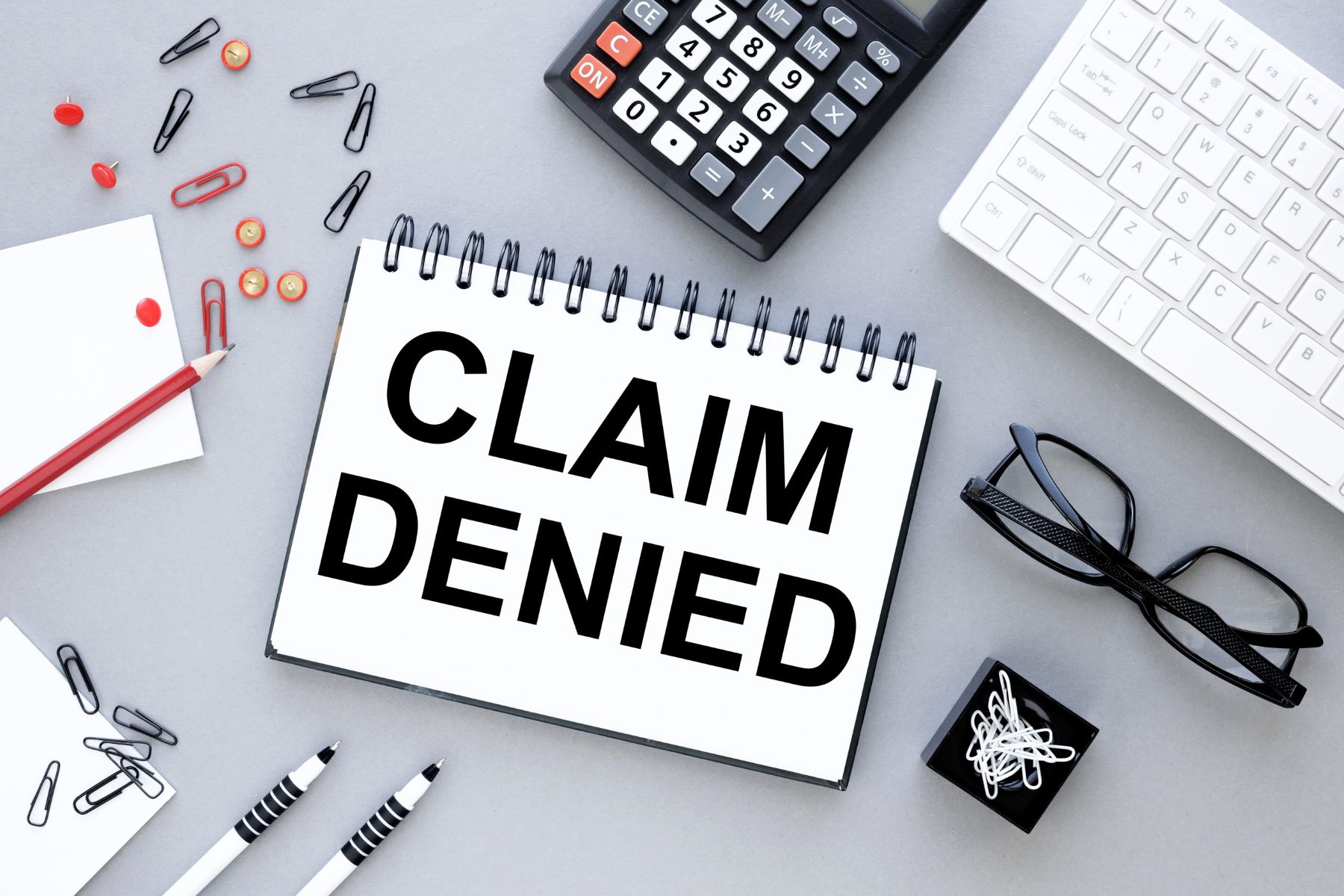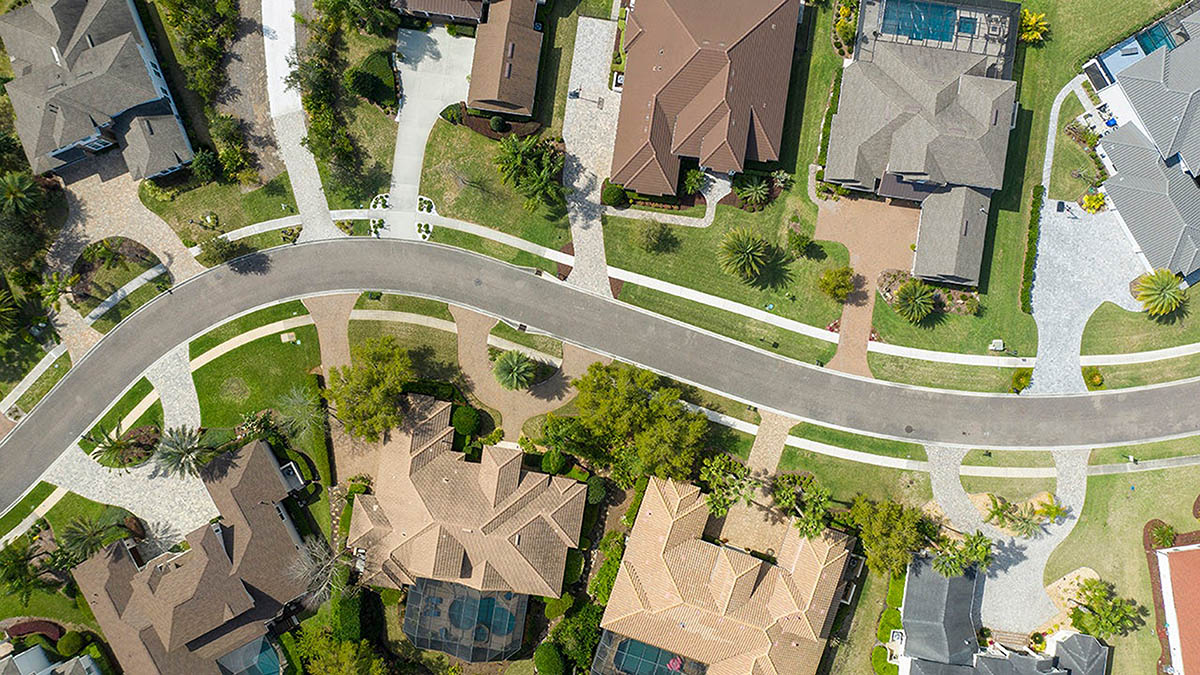

Finance
When To Buy Homeowners Insurance
Published: November 22, 2023
Planning to buy homeowners insurance? Learn about the best time to purchase and get financial protection for your home with our helpful guide.
(Many of the links in this article redirect to a specific reviewed product. Your purchase of these products through affiliate links helps to generate commission for LiveWell, at no extra cost. Learn more)
Table of Contents
Introduction
When it comes to protecting your most valuable asset, your home, homeowners insurance is an essential investment. Accidents, natural disasters, and unforeseen events can cause significant damage to your property, resulting in financial burdens that can be difficult to overcome without the right insurance coverage.
In this article, we will explore the importance of homeowners insurance, what factors you should consider when purchasing a policy, and when the ideal time is to buy homeowners insurance. Whether you are a first-time homeowner or looking to renew your existing policy, this guide will provide you with the necessary information to make informed decisions about protecting your home and belongings.
Understanding the ins and outs of homeowners insurance can feel overwhelming, especially if you are unfamiliar with the world of finance and insurance. However, by breaking down the key concepts and considerations, we aim to simplify the process and empower you to navigate this decision with confidence.
So, whether you are in the process of buying your first home, have recently purchased a new property, or are reevaluating your current homeowners insurance coverage, read on to discover everything you need to know about when to buy homeowners insurance.
Understanding Homeowners Insurance
Homeowners insurance is a type of property insurance that provides financial protection against damage or loss to your home and its contents. It is designed to cover a range of risks, including fire, theft, vandalism, severe weather events, and liability for accidents that occur on your property.
When you purchase a homeowners insurance policy, you pay a premium to the insurance company in exchange for coverage. The amount of coverage you receive and the specific events or scenarios that are covered will vary based on the policy you choose. It is important to carefully review the terms and conditions of a policy before committing to ensure it meets your specific needs.
There are typically four types of coverage included in a standard homeowners insurance policy:
- Dwelling coverage: This covers the cost of repairing or rebuilding your home if it is damaged or destroyed by a covered event, such as a fire or severe weather.
- Personal property coverage: This covers the cost of replacing or repairing your personal belongings, including furniture, clothing, and electronics, if they are stolen, damaged, or destroyed.
- Liability coverage: This provides protection if someone is injured on your property or if you cause damage to someone else’s property. It can help cover legal fees and medical expenses.
- Additional living expenses coverage: This covers the cost of alternative living arrangements if your home becomes uninhabitable due to a covered event. It can include temporary accommodation and additional expenses incurred, such as meals and transportation.
It’s important to note that homeowners insurance does not cover every type of event or damage. Most policies have exclusions, such as damage caused by floods or earthquakes. To ensure you have comprehensive coverage for all potential risks, you may need to purchase additional policies or add-ons, such as flood insurance or earthquake coverage.
Taking the time to understand the different types of coverage and exclusions is essential for selecting the right homeowners insurance policy that suits your needs and offers adequate protection for your home and belongings.
Factors to Consider When Purchasing Homeowners Insurance
When purchasing homeowners insurance, several factors should be taken into consideration to ensure you select the right policy for your needs. Here are some key factors to keep in mind:
- Replacement cost: Determine the estimated cost of rebuilding your home in the event of a total loss. This value should guide your choice of dwelling coverage. Remember to consider factors like inflation and the current cost of construction materials.
- Deductible: The deductible is the amount you have to pay out of pocket before your insurance coverage kicks in. Higher deductibles typically result in lower premium costs, so consider your financial situation and choose a deductible amount that is affordable for you.
- Coverage limits: Review the policy’s coverage limits for dwelling, personal property, liability, and additional living expenses to ensure they are sufficient for your needs. Take into account the value of your belongings and the potential liability risks you may face.
- Policy exclusions: Carefully review the policy’s exclusions to understand what events or damages are not covered. If you live in an area prone to specific risks, such as earthquakes, floods, or hurricanes, you may need to purchase additional coverage or separate policies.
- Claims process: Research the insurer’s reputation for claims handling. Look for companies with a good track record of efficient and fair claims settlement. Prompt and hassle-free claim processing is crucial in times of crisis.
- Discounts: Inquire about available discounts that can help reduce your premium. Common discounts are usually provided for security features like alarm systems, smoke detectors, and fire-resistant construction materials. Bundling homeowners insurance with other policies, such as auto insurance, can also lead to savings.
- Financial strength and customer service: Take the time to research the financial strength and customer service of the insurance company. Assess its ability to pay claims and handle customer inquiries. Look for reviews and ratings from reputable sources to gain insight into the company’s reputation.
By considering these factors and conducting thorough research, you can make an informed decision and choose a homeowners insurance policy that offers the right level of coverage and suits your specific needs and budget.
When to Buy Homeowners Insurance
It is important to purchase homeowners insurance before you actually need it. Here are some key scenarios when you should consider buying homeowners insurance:
- Buying a new home: When purchasing a new home, it is essential to secure homeowners insurance before the closing. Most mortgage lenders require proof of insurance before finalizing the loan. Having insurance in place protects both your investment and the lender’s interest.
- Renovating or remodeling your home: If you are planning significant renovations or remodeling that may impact the value or structure of your home, it is wise to review your homeowners insurance policy. You may need to adjust your coverage to ensure you have adequate protection during the construction process.
- Moving to a new area: If you are relocating to a new area or state, it’s important to research the specific risks associated with that location. Certain hazards like hurricanes, wildfires, or flooding may require additional coverage beyond a standard homeowners insurance policy. Make sure to purchase the appropriate coverage based on the risks in your new area.
- Acquiring valuable possessions: If you have recently acquired valuable possessions such as fine art, jewelry, or collectibles, it is important to ensure that these assets are adequately covered by your homeowners insurance policy. You may need to add a rider or purchase additional coverage specifically for these valuable items.
- Starting a home-based business: If you are operating a business from your home, your homeowners insurance policy may not provide sufficient coverage for business-related liabilities or property damage. You may need to consider adding a business policy or endorsement to your homeowners insurance to adequately protect your business assets.
Remember, unforeseen events can happen at any time, and being proactive by purchasing homeowners insurance before you actually need it is crucial. Don’t wait until it’s too late and you are facing unexpected financial losses due to property damage or liability claims.
Key Considerations for First-time Homeowners
If you are a first-time homeowner, navigating the world of homeowners insurance may feel overwhelming. Here are some key considerations to keep in mind as you embark on this new journey:
- Research and compare insurance providers: Take the time to research and compare insurance providers to find the one that offers the best coverage and pricing for your needs. Look for reputable companies with positive customer reviews and a strong financial standing.
- Evaluate the replacement cost of your home: Determine the estimated cost to rebuild your home in case of a total loss. This will help you determine the appropriate dwelling coverage you need to adequately protect your investment.
- Assess the value of your possessions: Take an inventory of your personal belongings and estimate their value. This will help you determine the appropriate personal property coverage to ensure your belongings are adequately protected.
- Consider liability coverage: Liability coverage is important to protect you in the event someone is injured on your property or if you cause damage to someone else’s property. Assess your risk exposure and choose a liability coverage limit that aligns with your needs.
- Understand policy exclusions: Thoroughly review the policy exclusions to understand what events or damages are not covered. Consider purchasing additional coverage or endorsements to fill any gaps and protect against specific risks in your area.
- Explore available discounts: Look for opportunities to save on your homeowners insurance premium. Many insurance providers offer discounts for security systems, smoke detectors, bundled policies, and more. Inquire about these discounts and take advantage of them.
- Consider the claims process: Research the claims process of insurance providers to ensure they have a reputation for efficient and reliable claims handling. A smooth claims process can make a significant difference during a challenging time.
- Review and update your policy annually: As a first-time homeowner, your circumstances may change over time. Review your policy annually to ensure it still provides adequate coverage for your evolving needs.
Being a first-time homeowner is an exciting milestone, and securing the right homeowners insurance policy is an essential part of protecting your investment. By considering these key considerations, you can make informed decisions and ensure your home and belongings are adequately protected.
Renewing Homeowners Insurance Policies
Renewing your homeowners insurance policy is an important process that ensures your home and belongings remain protected. Here are some key points to keep in mind when renewing your homeowners insurance:
- Review your current policy: Take the time to review your existing homeowners insurance policy before it is up for renewal. Understand the coverage, deductibles, and limits to ensure they still meet your needs and expectations.
- Assess any changes: Consider any changes that may have occurred since you initially purchased your policy. Have you made renovations? Acquired new valuables? Consider adjusting your coverage limits and endorsements accordingly to ensure adequate protection.
- Shop around for competitive quotes: Don’t be afraid to shop around and obtain quotes from different insurance providers. This can help you find a better deal or discover additional coverage options that may benefit you.
- Consider bundling policies: If you have multiple insurance policies, such as auto or life insurance, consider bundling them with the same insurance provider. This can often result in discounts, making your overall insurance costs more affordable.
- Take advantage of loyalty discounts: Many insurance companies offer loyalty discounts to policyholders who renew their coverage with them. Inquire about these discounts and see if they can be applied to your policy.
- Stay informed of policy changes: Insurance policies can undergo changes over time, whether it be revisions to coverage or modifications in deductibles. Stay informed of any changes made to your policy and assess their impact on your coverage.
- Consider working with an insurance agent: If navigating the renewal process feels overwhelming, consider working with an insurance agent. They can help you navigate the options, understand the terms, and make informed decisions about your coverage.
- Don’t be afraid to switch providers: If you find better coverage or pricing with a different insurance provider, don’t hesitate to switch. Just ensure you have a new policy in place before canceling your existing one to avoid any gaps in coverage.
Renewing your homeowners insurance policy is an opportunity to reassess and ensure you have the right coverage for your needs. By reviewing your policy, exploring options, and staying informed, you can make the most of the renewal process and continue to protect your home and belongings effectively.
Conclusion
Homeowners insurance is a critical investment for homeowners, offering protection and peace of mind in the face of unexpected events or disasters. Understanding homeowners insurance, considering key factors when purchasing a policy, and knowing when to buy or renew coverage are essential for homeowners.
By comprehending the different components of homeowners insurance, such as dwelling coverage, personal property coverage, liability coverage, and additional living expenses coverage, homeowners can ensure they have appropriate protection for their homes and belongings.
Factors to consider when purchasing homeowners insurance include evaluating the replacement cost of the home, choosing a deductible, determining coverage limits, understanding policy exclusions, and assessing the insurer’s reputation for claims handling and customer service. Exploring discounts can also help homeowners save on premiums.
Knowing when to buy homeowners insurance is crucial. This includes scenarios such as buying a new home, renovating or remodeling, moving to a new area, acquiring valuable possessions, or starting a home-based business. Being proactive and purchasing coverage before unexpected events occur is essential to safeguard your investment.
For first-time homeowners, several additional considerations should be taken into account. Researching and comparing insurance providers, evaluating replacement costs and the value of possessions, understanding policy exclusions, exploring available discounts, and reviewing the claims process are all important steps for first-time homeowners.
When it comes time to renew homeowners insurance policies, homeowners should review their current policy, assess any changes in their circumstances, shop around for quotes, consider bundling policies, stay informed about policy changes, and consider working with an insurance agent if needed. Don’t be afraid to switch providers if a better deal or coverage is available.
In conclusion, homeowners insurance is an essential aspect of protecting your most valuable asset. By understanding the intricacies of homeowners insurance, considering key factors when purchasing or renewing coverage, and being proactive in securing the right policy, homeowners can have the peace of mind that comes with knowing their home and belongings are well-protected.














